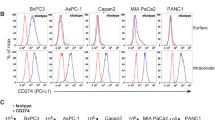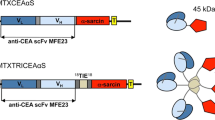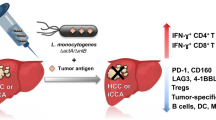Abstract
The present study reports a novel nonviral method to efficiently and specifically target carcinoembryonic antigen (CEA)-producing cholangiocarcinoma (CC) cells in vitro. Epstein-Barr virus (EBV)-based and conventional plasmid vectors were constructed that possess the β-galactosidase (β-gal) or herpes simplex virus-1 (HSV-1) thymidine kinase (Tk) genes as well as tandem repeats of the human genomic sequence −82 to −42 bp from the transcriptional start site of the CEA gene. The plasmids were transfected by means of polyamidoamine dendrimer into CEA-positive (HuCC-T1) or -negative cell lines. Transfection of the conventional plasmid vector with the CEA promoter and β-gal gene resulted in a very low or undetectable level of marker gene expression even in the CEA-positive cell line. Transferring the HSV-1 Tk gene by conventional plasmid did not affect the susceptibility of HuCC-T1 cells to ganciclovir. In marked contrast, strong β-gal expression was specifically obtained in HuCC-T1 cells by transfecting the EBV-based plasmid in which the CEA promoter and a ubiquitous promoter (SRα) are employed to drive the EBV-encoded nuclear antigen 1 (EBNA1) and β-gal genes, respectively (pTES.β). Furthermore, CEA-positive but not -negative tumor cells were rendered highly susceptible to ganciclovir when transfected with the EBV-based vector that carries the CEA promoter-EBNA1 and SRα-HSV-1 Tk genes (pTES.Tk). These results strongly suggest that the EBV-based plasmid vector/cationic polymer system (EBV/polyplex) equipped with the CEA promoter provides an efficient nonviral method for the targeted gene therapy of CEA-producing malignancies.
This is a preview of subscription content, access via your institution
Access options
Subscribe to this journal
Receive 12 print issues and online access
$259.00 per year
only $21.58 per issue
Buy this article
- Purchase on Springer Link
- Instant access to full article PDF
Prices may be subject to local taxes which are calculated during checkout
Similar content being viewed by others
Author information
Authors and Affiliations
Corresponding author
Rights and permissions
About this article
Cite this article
Tanaka, S., Iwai, M., Harada, Y. et al. Targeted killing of carcinoembryonic antigen (CEA)-producing cholangiocarcinoma cells by polyamidoamine dendrimer-mediated transfer of an Epstein-Barr virus (EBV)-based plasmid vector carrying the CEA promoter. Cancer Gene Ther 7, 1241–1249 (2000). https://doi.org/10.1038/sj.cgt.7700219
Received:
Accepted:
Published:
Issue Date:
DOI: https://doi.org/10.1038/sj.cgt.7700219
Keywords
This article is cited by
-
Using virally expressed melanoma cDNA libraries to identify tumor-associated antigens that cure melanoma
Nature Biotechnology (2012)
-
Construction of an Oncolytic Herpes Simplex Virus That Precisely Targets Hepatocellular Carcinoma Cells
Molecular Therapy (2012)
-
Precise Scheduling of Chemotherapy Primes VEGF-producing Tumors for Successful Systemic Oncolytic Virotherapy
Molecular Therapy (2011)
-
Broad antigenic coverage induced by vaccination with virus-based cDNA libraries cures established tumors
Nature Medicine (2011)
-
Design and development of polymers for gene delivery
Nature Reviews Drug Discovery (2005)



